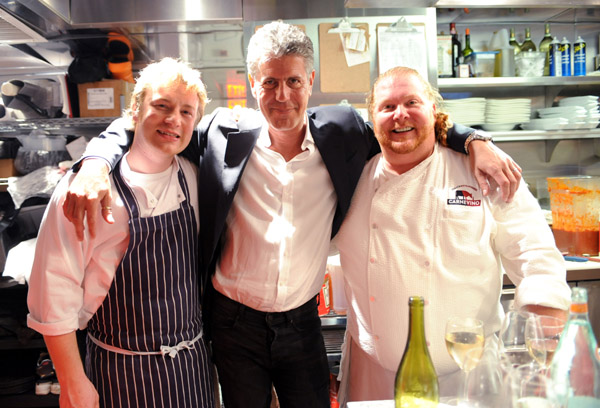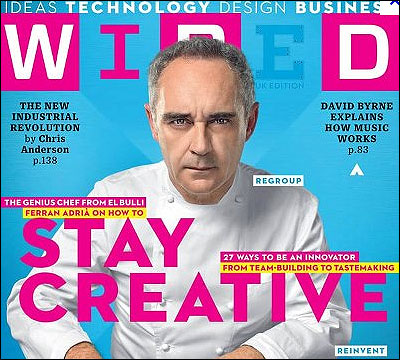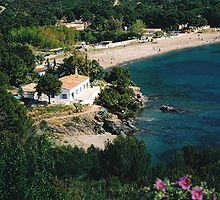What do you want to be when you grow up? You spend so much time teaching children to ask themselves this question, asking it to yourself. Is there one right path? What are you passionate about? What is your talent? How do you find out? What were you born to do? What can you do that will change the world and make it a better place?
I think we’ve been asking ourselves the wrong question. How are you supposed to find an answer without ever having been pushed into a certain field, whilst young, that you become passionate about?
Instead, we should be asking ourselves ‘what do I want the outcome of my work to be?’
This is what I aim to get out of my work; I aspire to:
- Be creative
- Be in control of own work and life (be my own boss) and have the freedom and responsibility that comes with that.
- To produce work that connects with others, produces emotions and adds value.
- Be economically comfortable
- To enjoy my work
- To be able to morally justify my work, and its consequences on the world, to myself.
We are not born for any one purpose. I just think it may feel that way once you are on a path that feels right, that you enjoy, that fulfils you. So where does this leave me?
With many options. What will I do? That will be revealed in the coming months.
It’s so easy to find reasons not to do something:
Clothing: fashion is superficial and what matters is inside us.
Writing: too much time observing, not enough time enjoying the moment from inside the bubble and over-analysing things until you become an alcoholic, depressive who shoots themselves in the head with a shotgun.
Movies: encourage needless escapism when people could be using their time more productively.
This is the problem with asking yourself what you want to do as as opposed to why you want to do it. When you know what you want the results of your work to be (this becomes the why you do it) the negative reasons not to do something soon disappear as you know and understand your reasons. It’s much easier to be a critic looking in from the outside than a creator working on the inside, but which would you rather be?
These negative ideas aren’t my views. But they are thoughts I have had. Thoughts that have paralysed me through over-analysis whenever I’ve been close to choosing what I want to do, leaving me feeling like Sylvia Plath before her fig tree.
“I saw my life branching out before me like the green fig tree in the story. From the tip of every branch, like a fat purple fig, a wonderful future beckoned and winked. One fig was a husband and a happy home and children, and another fig was a famous poet and another fig was a brilliant professor, and another fig was Ee Gee, the amazing editor, and another fig was Europe and Africa and South America, and another fig was Constantin and Socrates and Attila and a pack of other lovers with queer names and offbeat professions, and another fig was an Olympic lady crew champion, and beyond and above these figs were many more figs I couldn’t quite make out. I saw myself sitting in the crotch of this fig tree, starving to death, just because I couldn’t make up my mind which of the figs I would choose. I wanted each and every one of them, but choosing one meant losing all the rest, and, as I sat there, unable to decide, the figs began to wrinkle and go black, and, one by one, they plopped to the ground at my feet.”
We are all, every single one of us, so very capable of any number of things. We just have to commit. Commitment to hard work and getting good at your craft or proffession. And commitment becomes so much easier when you understand why you’re doing it.
This leads me to the inspiration for this post…
Having spent this past weekend in London with the purpose of mixing business & pleasure (heavily skewed 90%-10% in favour of pleasure) I was introduced by a certain Lithuanian/American lady friend of mine to a famous American, travel-writer-chef-tv guy: Mr Anthony Bourdain.

Jamie Oliver, Anthony Bourdain & another lover of all things Spanish: Mario Batali
Despite his digs at Jamie Oliver, I like this Bourdain character; a laid back, opinionated man who enjoys a drink; unashamed of his vices and laissez-faire lifestyle with his gonzo-esque, expletive laden views. He says & does what he wants and seems happy for it, as he travels the world eating great food, drinking a lot and probably getting paid well for the privilege. I admire that. Flicking through the 8 seasons of his TV show ‘No Reservations‘ watching the episodes of the places closest to my heart, notably France & Spain, I came across an episode of the infamous, now-defunct, El Bulli restauraunt in Cala Montjoi, Catalunya, (and at the risk of wrath) Spain, run by Ferrán Adriá.
As an avid reader of Wired magazine (he was front page of the UK edition this autumn), watcher of various Food programmes in Spain and general lover of Spanish gastronomy, I was well aware of Ferrán Adriá, molecular gastronomy, El Bulli and his new project. But in this episode of No Reservations, set in the last days of El Bulli’s existence, we’re privy not only to the superficial outer-observations of what the man does and how he does it but, more importantly and certainly more interestingly to me, why he does what he does.
Here is a man at the top, the pinnacle of his field, admired globally for his forward thinking approach to food and dining experiences, sharing his own creations with a TV host and writer on the last day of his 27 year El Bulli project, before moving onto even bigger, better things and he is as giddy as a child. He enjoys eating his own food, but more than that, key to everything he had built: he loved watching Mr Bourdain enjoy the food. He truly loved it. He went on to say during this meal, that he doesn’t hope people leave and remember the order of the courses or even exactly what they ate; he only hopes that they take with them forever the memory of the emotions and feeling of happiness the experience gave them. This was his why. Everything else was secondary to him. The food, the years of experiments and trial and error all boiled down to this most important of motives: Human connection. Creating happiness in the act of connecting with another human being.
Ferrán and his brother, Albert, grew up in a poor town called Hospitalitet just outside Barcelona. His father a painter and plasterer. He didn’t hail from a line of famous chefs, nor did he have the money to travel and train under the best chefs in the world and to set up his own restaurant. He went to work in a modest German owned restaurant in Catalunya and from there learnt to cook, and then began to travel over the border to France to learn new techniques, all the while implementing his techniques to a small number of local residents in a small restaurant in the middle of nowhere. He did things his own way. It is that exact same restaurant, in the exact same place, far from any major tourist attraction or large town of note, that decades later became the most popular, renowned restaurant in the world, being named the best restaurant in the world 5 times in 10 years before closing it’s doors in 2011.
Watching the man in action and others enthuse about the effect he has had on their lives (one great chef cried as he recalled how Ferrán had been so generous in sharing so much with aspiring chefs and had given him a soul, a purpose) led me to wonder, enviously, where such passion, dedication, drive, enthusiasm and joy for what one does comes from.
Ferrán Adriá was not born to cook. He loves what he does because he’s become good at it, and is able to express himself and, in doing so, connect and share happiness with others. Being a chef is just his modus operandi. He could have done done it in any number of ways, as we all can.
He succeeds where other forward thinkers have failed not because they lacked, skill or technique, but because they tried to move food forward in order to show how clever they were. Ferrán has always had a much deeper purpose. He moves things forward to find new ways to connect, to surprise and astonish and as a result, he’s happy to share everything he knows, because there is always more for him to learn too. He doesn’t guard his secrets through insecurity and fear of losing the magic. He generously shares and that makes him all the more magical.
As long as you know why you do what you do, and that purpose makes you happy, everything else is secondary, whether you do it for an audience of ten, ten thousand, or ten million.
In successfully doing this, you’ll find joy in your work and you’ll have your reason for being. A reason that will stave off the negative aspects of life. In successfully doing this, you provide a service to others and are content in yourself. And that’s enough. This is what we should aspire to. In doing our work in this way, we will touch and inspire others who come into our lives and will leave a positive impact on those around us which will in turn teach them to do the same. There are 7 billion people on earth. There aren’t 7 billion cures for cancer. To make others happy, even for a moment and to enjoy the work you do, is enough. Inspiring others to do the same will make the world a better place. Whether your audience is 10 people, 10,000 people or 10,000,000 people.


